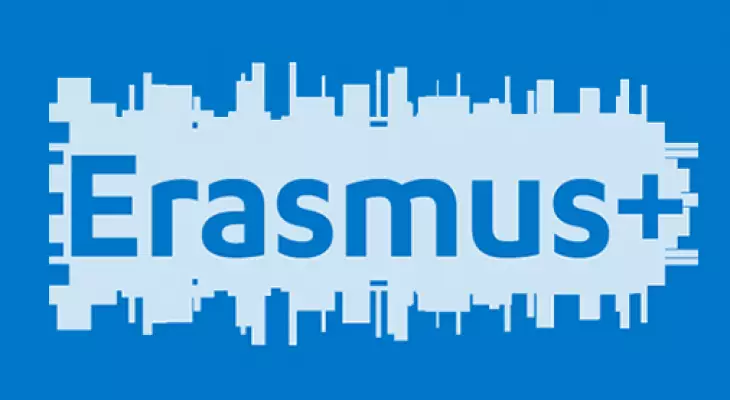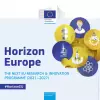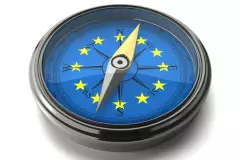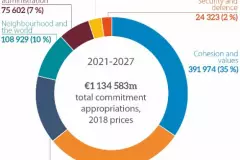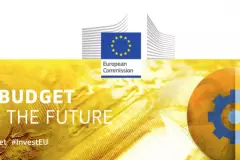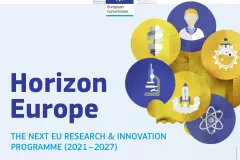ERASMUS+ becomes more inclusive and sustainable
When you think of ERASMUS+, the first thing that comes to mind is students on their semester abroad. But the EU's Education, Training, Youth and Sport programme is more multi-faceted than you might think. ERASMUS+ supports various types of mobility and collaborative projects in a total of 34 programme countries. By the way, in addition to the 27 European member states, Iceland, Liechtenstein, Northern Macedonia, Norway, Serbia, the United Kingdom and Turkey can also participate in this programme.
What will change in the new funding period 2021-2027?
The exact funding of the ERASMUS+ programme depends on the EU budget, the Multiannual Financial Framework (MFF), which is always adopted for a period of seven years. Within the past weeks all the attention was on Brussels, because there the member states decided on the new EU funding period 2021-2027. These negotiations are decisive for the future of ERASMUS+ and decide on the livelihood of a large number of organisations.
When it was announced that the budget would be increased to 24.7 billion euros between 2021 and 2027 the relief was noticeable. Around 12 million people are going to benefit from project funding and are going to be able to participate in various forms of exchange.
“The new, larger programme for the period 2021-2027 focusses on inclusion. It enables us to support new initiatives and attract an even greater number of participants. We want to generate enthusiasm for Europe.”
Anja Karliczek, Federal Minister of Education and Research
Structural changes
Additionally, administrative hurdles for project sponsors are simplified by reducing the cost categories to only three cost types. Many ERASMUS+ funding bodies are hoping for an increase in the budget for the project management cost category as well. Initially it was 500 euros per month which was not sufficient for most project implementations. The three well-known key actions in ERASMUS+ will remain the same, however they will be made more inclusive and accessible. New additions are the following activity types: Youth Participation Projects, Discover EU and Small-Scale Partnerships.
- In Key Action 1, a new accreditation procedure for organisations will be introduced, which will simplify access to funding for promoters and institutions.
- In addition, the administrative structure will be mixed, i.e. measures such as Individual Learning Mobility and KA2 Strategic Partnerships will be managed by National Agencies in the future.
- There will be a so-called ERASMUS+ accreditation for the executing agencies of Key Action 1, which has the advantage of promoting mobilities and the internationalisation of the different institutions in an uncomplicated and long-term way. This accreditation is comparable to a membership in the programme; instead of funding individual projects, institutions will apply for an accreditation for key action 1 once and will then be able to apply for funds and receive funding on an annual basis.
- In Key Action 2, there will be a new so-called "Small Scale Partnerships" in addition to the Cooperation Partnerships, which are strongly linked to the previous Strategic Partnerships. With reduced requirements and a shorter duration, these are also intended to offer inexperienced local organisations access and initial entry to the programme.
- Key Action 3 will provide funding for a wide range of actions aimed at stimulating the development and implementation of innovative policies, policy dialogue and knowledge exchange in the fields of education, training and youth.
Sustainability, digitilisation and sport - new content priorities.
Furthermore, the additional money in the new EU budget is to be invested primarily in sustainability and inclusion. This will be reflected in both content priorities and funding practices. For example, to reduce the number of flights under ERASMUS+, the budget for travel by train has been increased. Considering how much travel is conducted in the name of ERASMUS+, one can imagine that this minimal change can already have a big impact.
The topic of digitalisation in education will also play an increasingly important role in the coming funding period! The digitalisation of the ERASMUS+ programme is one of the big topics for the future of European cooperation. New innovative approaches that could lead to progress within the education sectors are explicitly encouraged. Participation in the programme will be possible in all areas in form of integrated learning ("blended learning"); likewise, the acquisition of knowledge and skills by means of eLearning will be expanded. Under the current conditions of COVID-19, the programme has already done important preparatory work to ensure that participation remains possible without physical mobility and without face-to-face learning.
The Sport chapter of the ERASMUS+ programme is focused on promoting European partnerships in grassroots sport with the following objectives: combating cross-border threats to the integrity of sport, such as doping, match-fixing and violence, as well as all forms of intolerance and discrimination. There will also be more focus on promoting and supporting good governance in sport and dual careers for athletes.
Where do we go from here?
The first calls and the new guide of the programme are expected in spring 2021!
In the ERASMUS+ programme, the calls are announced annually and a new guide, available in all official EU languages, is published around the same time. Then, sponsors and funders will get a more precise idea of the implementation of the new ERASMUS+ programme. We are curious!

